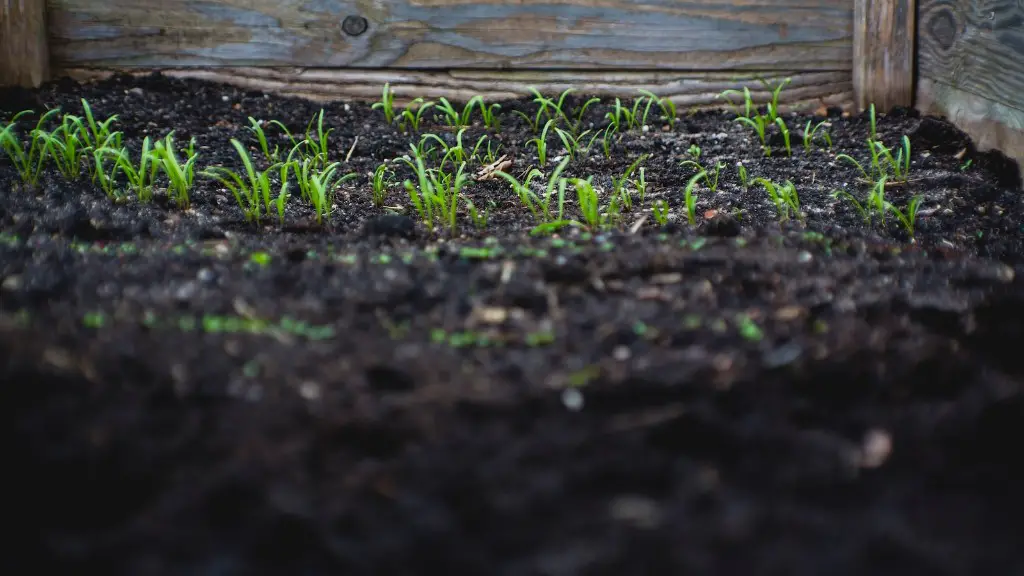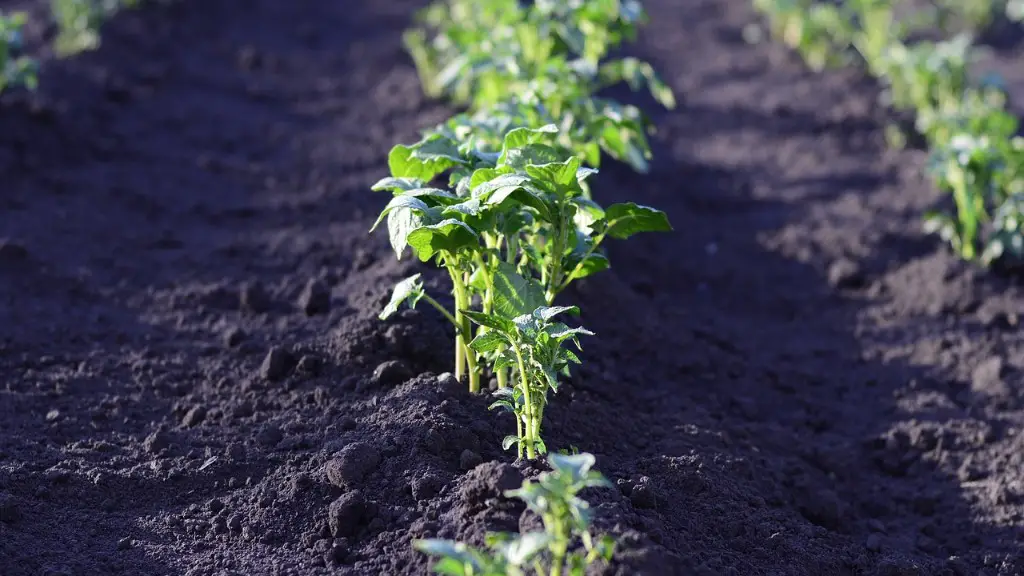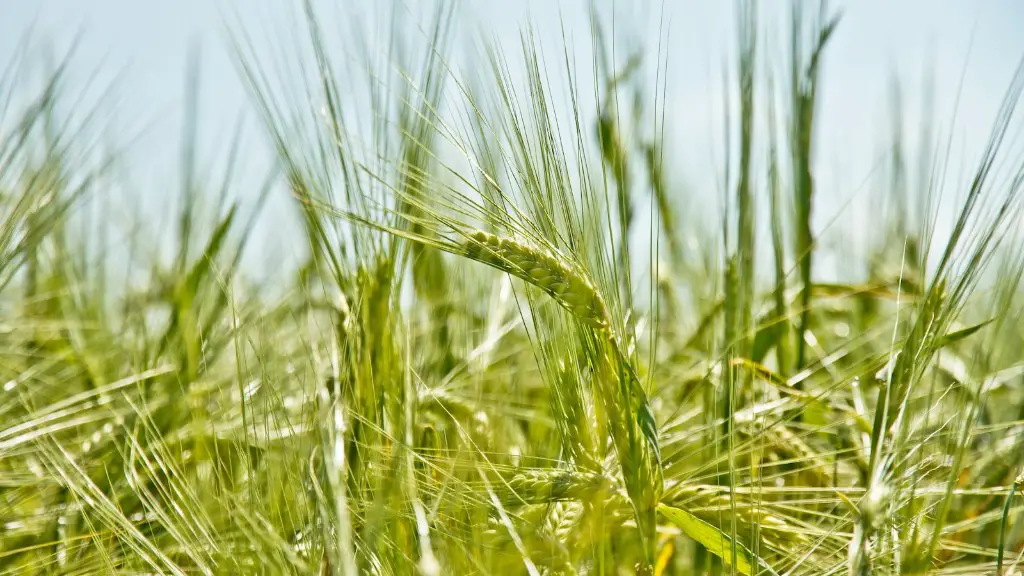Tissue culture is the cultivation of plant cells, tissues or organs in an artificial medium under sterile conditions. It is an efficient way to propagate crops, develop new varieties and produce disease-free plants.
Tissue culture is a process of growing new plants from small pieces of existing plants in a controlled environment. This method is used to produce clones of a plant with desirable traits, such as disease resistance or faster growth.
What is tissue culture explain?
Tissue culture is a method of biological research in which fragments of tissue from an animal or plant are transferred to an artificial environment in which they can continue to survive and function. The cultured tissue may consist of a single cell, a population of cells, or a whole or part of an organ.
Plant tissue culture is a powerful tool that can be used to produce large numbers of genetically identical plants. This technique can be used to propagate rare or endangered plants, to produce disease-resistant plants, or to create new varieties of plants with desired characteristics.
Why do we use tissue culture in agriculture
Tissue culture is an important tool for plant propagation and preservation. It allows for the development of more vigorous plants, and ultimately saves money and increases revenue. The new plantlets grow in a gelling media under strictly controlled environmental and nutritional conditions.
Tissue culture is a process that helps us to produce more copies of the same plant with the desired characteristics. Some of these desired characteristics include big fruits, more fruits, colorful flowers, and disease resistance. This process also helps us to produce plants that do not depend on the seasonal changes of that area for a particular yield.
Which plants are grown by tissue culture?
Micropropagation is a plant tissue culture technique that involves culturing plant cells or tissues on a nutrient medium under controlled environmental conditions. By doing so, micropropagation can be used to produce clones of plants with desirable traits (e.g. disease resistance, higher yield, etc.). Countries across the globe utilize tissue culture for the cultivation of various plants, including medicinal plants, ornamental plants, and crops.
Tissue culture is a process that involves the use of small pieces of plant tissue to grow new plants. This method can be used to produce crops that are disease-resistant, and it is often used to produce plants that are not found in nature. Tissue culture has been used to produce oil palm, banana, eggplant, pineapple, rubber tree, tomato, and sweet potato in developing countries.
What are disadvantages of tissue culture?
Tissue culture is a very sensitive and expensive process that requires special care and understanding. The setup of a tissue culture laboratory is very costly, and the experiments must be handled by highly trained personnel. While tissue culture can be a very powerful tool, it also has its drawbacks.
Tissue culture is the process of growing plant cells or tissues in an artificial medium under controlled conditions. Tissue culture has been used to create genetic variability from which crop plants can be improved. This process can also be used to improve the state of health of the planted material and to increase the number of desirable germplasms available to the plant breeder.
What is the problem in plant tissue culture
There are a number of common challenges that can arise during tissue culture, including contamination, vitrification, browning of media, recalcitrance, somaclonal variation, and loss of totipotency. Each of these issues can potentially lead to problems with the culture and the resultant tissue, so it is important to be aware of them and take steps to avoid or mitigate them.
Tissue culture is a technique that can be used to produce thousands of exact copies of a plant from a small sample. This is not possible with conventional breeding, which requires seeds or other propagative parts.
What are 3 uses for tissue culture?
Micropropagation is the process of producing large numbers of identical plants from a small sample. This can be done by taking a small piece of plant tissue (called a cutting) and growing it in a sterile environment. The cutting will produce a new plant that is genetically identical to the original.
This technique is often used to produce large numbers of plants for commercial purposes, as it is much faster than traditional methods of propagation. It can also be used to create clones of desirable plants, for example those with unique colors or disease-resistant traits.
large-scale growth of plant cells in liquid culture as a source of secondary productsMicropropagation can also be used to create large numbers of plant cells in liquid culture. These cells can be used as a source of secondary metabolites, such as flavonoids and essential oils. This is a relatively new area of research, and there is great potential for further development.
Tissue culture is a process of growing cells or tissue in an artificial environment. This process can be used to mass-produce crops or to create genetic copies of plants. Tissue culture is a profitable business because it can be used to create large numbers of plants quickly and cheaply.
What is the disadvantage of tissue cultured plants
There are several disadvantages to tissue culture, which include the increased labor and cost, as well as the potential for the plants to be less resilient to diseases.
Tissue culture is an artificial method of culturing plants. In this method, a small part of the plant is used to grow cells in a nutrient solution in the sterile condition of the laboratory. Tissue culture is a very fast technique. Advantages of Tissue Culture The new plantlets can be grown in a short period of time.
Do plants grow faster in tissue culture?
Although tissue culture plants grow faster and better, they are just as vulnerable as any other plants unless appropriate precautions are taken. Tissue culture plants are free from soil borne diseases, but they can still contract other diseases that can be just as deadly. It is important to take care of tissue culture plants just as you would any other plant to ensure their health and longevity.
Slow-growing plants can live for several weeks in the cups, but fast-growing plants like stem plants have a rapid growth rate and can outgrow the cups.
Final Words
In tissue culture, plant cells or tissues are cultured on an artificial nutrient media under controlled environmental conditions. The aim of tissue culture is to produce a large number of identical plants from a small number of parent plants.
Tissue culture is an important tool in agriculture. It allows for the propagation of plants from a small amount of tissue, which is a crucial step in plant breeding programs. It also allows for the production of plants with desired traits, such as resistance to disease and pests.





